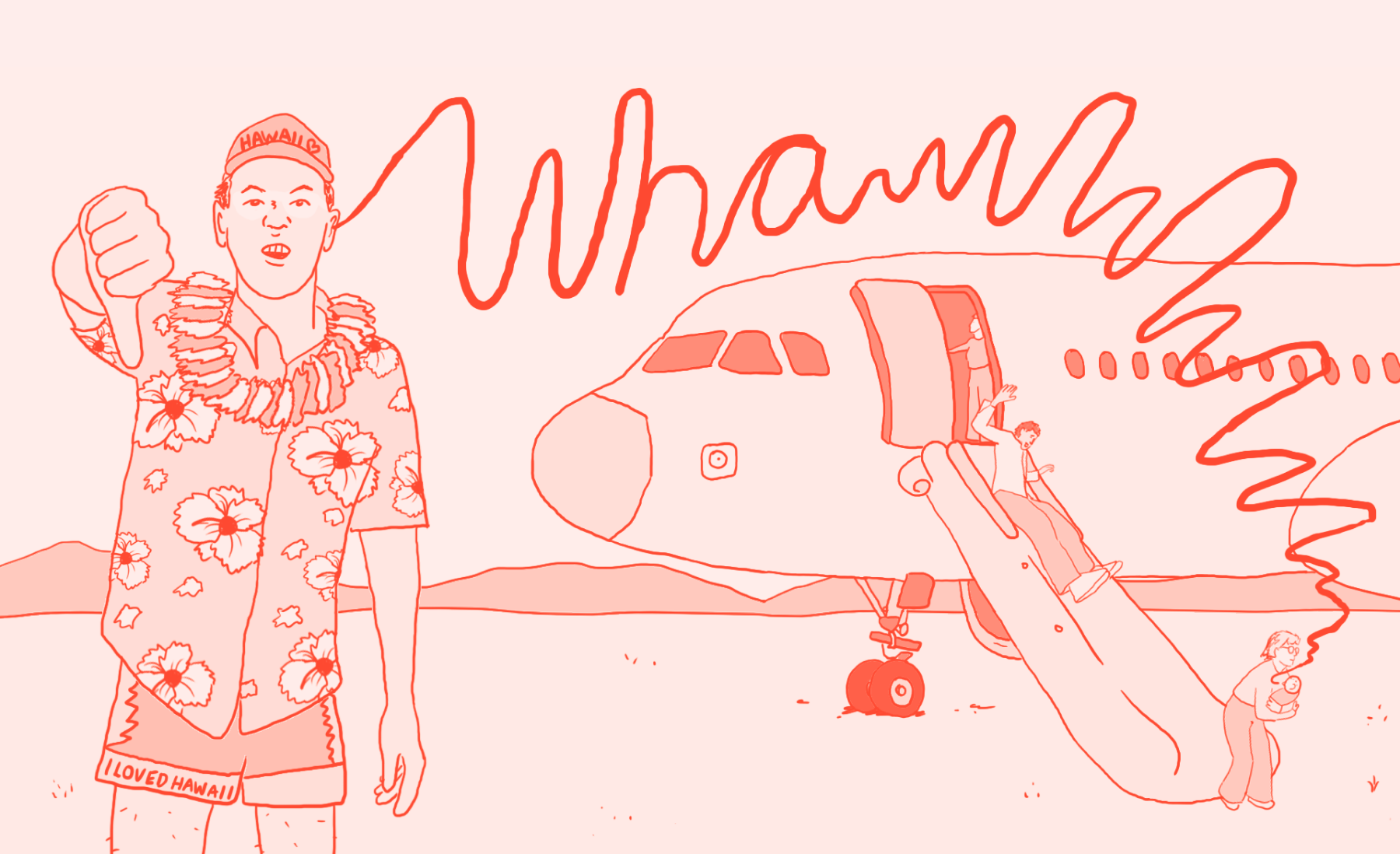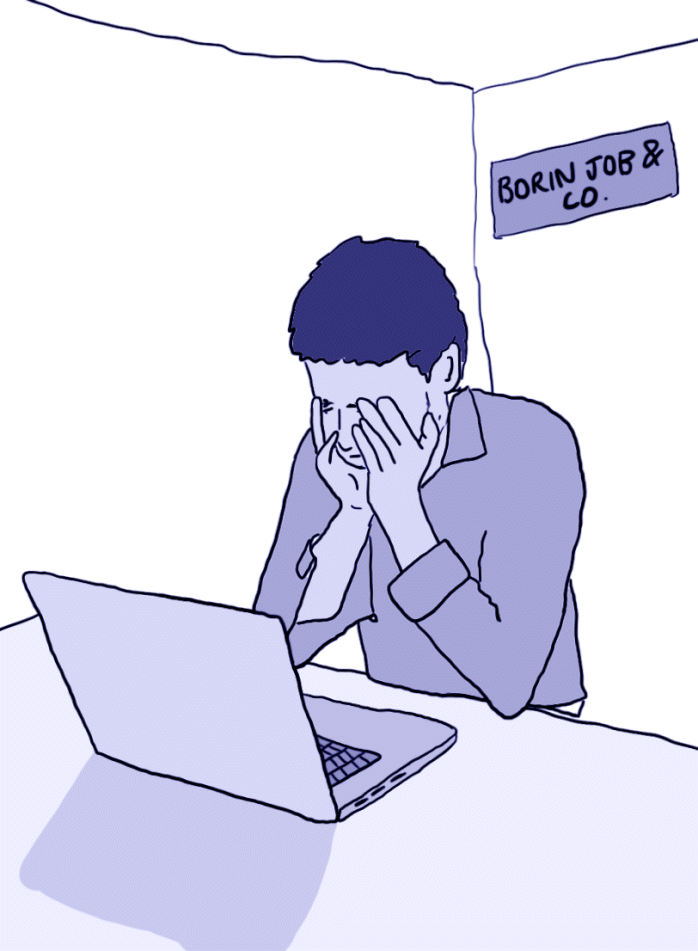The Why #68: Why did my terrible return flight taint my whole holiday?
By Dan Monheit 18.6.22
Question submitted by Kiara, Oakleigh
We’ve all been there, Kiara, but let me guess. The redeye back from Bali has got you feeling more exhausted than before you left?
Of course, the first few days back at work are filled with polite questions about the trip and what your highlights were. You try to keep it light, rattling off some nice stories about the hotel pool and that cute bar you found with the amazing cocktails. But then you feel it rising up inside you. It’s surging, forcing its way out. You can’t fight it… “But jeez, the flight home was a nightmare.”
Were endless Pina Coladas on the beach not enough for you, Kiara? Do you hate warm, sunny weather or are you just a ‘glass half empty’ kind of person? Never fear, if you’re human (which I assume you are) you just have a funny way of remembering things…
Peak End Rule
Refers to the way we remember experiences based on the peaks (ie the emotional high or low points) and the endings, rather than the average of how we felt throughout them. In other words, not all parts of an experience are created equal when it comes to shaping memories.
A seminal piece of ‘holiday memory’ research comes to us courtesy of Behavioural Science godfather Danny Kahneman and researcher Barbara Frederickson. Their 1993 experiment titled ‘When More Pain is Preferred to Less: Adding a Better End’ provides us with a unique insight into how we remember experiences.
In the study, participants were subjected to two versions of the same unpleasant feeling:
In the first version, participants submerged one hand in ice cold water for sixty seconds.
In the second, they submerged their other hand in ice cold water for the same duration, followed by an additional 30 seconds in water that was still very cold but slightly warmer and more bearable than the first.
After completing both versions, participants were asked which one they would choose to repeat if they had to. Strangely, participants showed a greater willingness to repeat the second trial, despite the fact that the total time of discomfort was 50% longer. Why? The more positive ending had a greater influence on their memory.
But back to you, Kiara. If we consider that it’s the peak moments and the endings that shape our memories, it all starts to make sense. It’s no wonder that a seven hour delay, no vegetarian option, bad in-flight service and a seat next to a crying toddler left a sour taste to an otherwise sweet vacay.
For brands, when it comes to experiencing your product or service, it’s worth asking what we think people will remember. Rather than spreading your efforts thinly across the entire customer journey, look for ways to focus on creating one or two peaks, preferably towards the end. (Of course, avoid anything diabolical along the way). If you can do this, it will have a far greater impact on the way people remember, talk about and recommend their experience. And for the travellers heading home, it never hurts to ask for an upgrade.
Behaviourally Yours,
PS If you missed the last edition, you can still check out why it feels like everyone is in Europe right now here.
Bad Decisions Podcast
Learn more about Peak End Rule in episode 12 of the Bad Decisions Podcast.
Got a question?
Is there something you’ve always wondered about?
Send it through to AskDan@hardhat.com.au
Want more?
Chat out Dan’s write up in CEO Magazine on the disproportionate power of free on consumers here.
The Why, The Book
If you’re a fan of having your curly questions answers, secure your copy of the newly released Amazon #1 Best Seller ‘The Why, The Book’ by Dan Monheit here.


